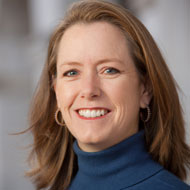Grassroots efforts = green results
Improving sustainability practices is a growing trend in businesses and organizations, with 62 percent of companies in 2009 reporting they had empowered internal teams to create eco-friendly workplaces.
“It’s become part of our jobs to take time to think creatively about sustainability,” says Dedee DeLongpré Johnston, director of sustainability at Wake Forest.
Green teams — groups of employees who volunteer to help identify and implement specific sustainable practices in their departments — are flourishing. This month, Wake Forest is launching its own green team initiative, based on a successful program DeLongpré Johnston started as director of sustainability at the University of Florida. The program encourages departments to select a green team “captain” to evaluate the current level of sustainable practices in the office and make suggestions for ways to improve. Ideas might include simple changes such as purchasing copy paper with recycled content or making available reusable mugs and utensils rather than using disposable ones. Or, changes may be more impactful, like eliminating mini-fridges in individual offices.
“Sustainability is not a one-size-fits-all concept,” says DeLongpré Johnston. Each department on campus has different needs. “Organizations tend to be more willing to embrace community-wide goals when they have had a hand in creating the plans to implement them. In using this kind of community-based approach, people often come up with ideas that are bolder than those suggested by the organization—such as having only one trash can per department as a way to encourage waste reduction and recycling.”
Eco-friendly practices adopted by departments on college campuses can take root in the larger civic community as well. DeLongpré Johnston uses development and investment offices as an example. There are often expectations that single-serving bottles of water will be available for meetings, she says. A department might choose to continue that practice or might decide instead to offer glasses of water rather than plastic bottles. “If the department decides to offer refillable water glasses, this becomes an opportunity to involve outside constituents in what Wake Forest is trying to accomplish.”
Joshua DeWitt, a senior business and enterprise management major from Sioux Falls, S.D., and Katherine Sinacore, a biology major, from Darien, Conn., gather resources and information for green team captains. As interns in the Office of Sustainability they support the program’s main goal. “Our job is to empower departments to incorporate sustainability into their offices in a culturally appropriate way,” says Sinacore.
“Many people aren’t aware that if you throw food into a paper-only recycling bin, it contaminates the contents and the paper has to go to the landfill,” says DeWitt. “This could affect choices about where to place recycling bins in an office space.”
Green team captains at Wake Forest will meet quarterly for peer-to-peer education and workshops. Recognition for departments with innovative sustainability practices is planned. Student interns are available as consultants to work with departments and help answer questions or make presentations.
“Holistic campus-wide collaboration can really make a difference,” says Kris Frantz, assistant to the vice-president in the Office of Investments. “But, we must be willing to evaluate our strengths and weaknesses with an open mind to allow us to intertwine sustainability practices with our everyday routines.”
Frantz was one of ten Wake Forest green team captains selected as part of a pilot test program in fall 2010.
Categories: Environment & Sustainability, University Announcements
Media Contact
Wake Forest News
media@wfu.edu
336.758.5237




